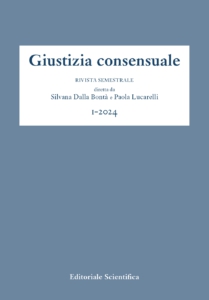The 2024 Annual Inter-regional and International Family Law Forum of Chinese Society of Private International Law was held in Guangzhou
(This post was drafted by Zhang Yong, a PhD student in the University of Macau and revised by Guangjian Tu)
The Annual Inter-regional and International Family Law Forum of Chinese Society of Private International Law was held on September 21, 2024 in Everwin Law Office, Guangzhou. Scholars, practitioners and notaries from all over the country working in the field came together to discuss the relevant issues. After the opening ceremony chaired by Prof. Guangjian Tu from the University of Macau, keynote speeches were delivered: 1, Prof. Yong Gan, School of Law of Wuhan University, who is a member of the Expert Group, introduced the progress of the Expert Group’s work on the Parentage/Surrogacy Project in the Hague Conference on Private International Law; 2, Prof. Faqiang Yuan, School of International Law of East China University of Political Science and Law, shared his research article titled “Annual Report on the Development of Rule of Law in the Field of Family Affairs: Domestic and Abroad in 2022-2023″.
In the parallel sessions, participants had heated debates and discussions on new developments in foreign-related family law in the Mainland China, foreign-related and Hong Kong and/or Macao-related marital property relations and agreements, parentage and maintenance support, recognition and enforcement of inter-regional marriage and family judgments, foreign-related and Hong Kong and/or Macao-related inheritance, and jurisdiction over inter-regional family issues etc.
Of course, the Arrangement on Reciprocal Recognition and Enforcement of Civil Judgments in Matrimonial and Family Cases by the Courts of the Mainland China and of the Hong Kong Special Administrative Region (the Arrangement) was the focus of this forum. The Arrangement was adopted on 20 June 2017 and came into effect on 15 February 2022. In order to achieve closer and more extensive judicial assistance in the area of marriage and family law between Mainland China and Hong Kong, except for inheritance-related issues, the Arrangement covers a broad range of matters, almost everything in marriage and family laws such as validity of marriage, marital property relationships, parentage, maintenance, adoption etc. This is very different from the Regulations enacted in the European Union, which regulated those issues one by one in a piece-meal approach.

